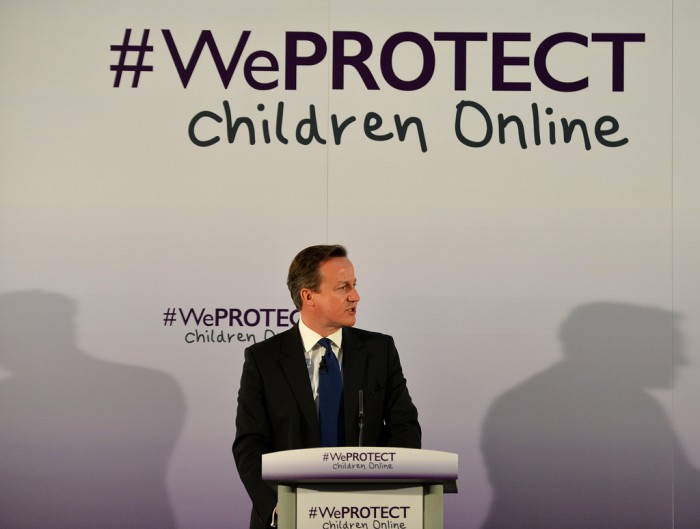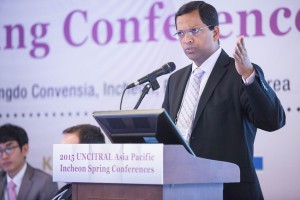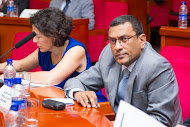1st September 2015 Colombo, Sri Lanka
Welcoming Sri Lanka to the Cybercrime Convention

This blog celebrates the fact that today, on Tuesday 1 September, Sri Lanka became a fully fledged member of the Budapest Convention on Cybercrime. Sri Lanka is the first country in South Asia, and only the second in Asia after Japan, to join this Convention.
Cybercrime is any kind of crime committed with a computer and a network: anything and everything from stealing your personal records, to making the internet sites we rely on for banking and shopping crash, to horrendous online exploitation of children. It is the fastest growing global crime threat. Every day a UK firm or organisation’s website is compromised by hackers or another form of cyber attack. And at the personal level, if you don’t know someone who has had their email hacked, or received a phishing email trying to steal your passwords, you are both unusual and lucky.

Budapest is the first international treaty to address internet and computer crime. It aims to keep us all safer by harmonising national laws, improving investigative techniques, and increasing cooperation among nations. Cybercriminals operate across borders, and we can only defeat them if we cooperate across borders. By expanding that partnership into South Asia, Sri Lanka’s accession helps protect us all.
Sri Lanka’s accession to the Convention was the fastest by any country, not least because of its earlier groundwork on international cooperation against cybercrime. Sri Lanka was one of the 48 countries and international organisations to sign up to the statement of action at Prime Minister David Cameron’s #WePROTECT Summit. The statement’s political commitments and technological initiatives will make it much more difficult for criminals who seek to exploit the internet to abuse children for sexual purposes. All this will be turned into coordinated national action at the follow up Summit in Abu Dhabi this November.

Sri Lanka also hosted an international conference on cybercrime in March. The architect of that meeting – and indeed one of the prime movers behind Sri Lanka’s decision to accede to the Budapest Convention – got his inspiration while studying in the UK as a Chevening Scholar.
Thinking back on that time, and its influence on him, Jayantha Fernando comments: “My first exposure to this Convention was when I read for my specialized LLM in IT & Communications Law as a Chevening Scholar in 2002-03. At the time, I was on the steering committee of an ambitious ICT development programme, known as e-Sri Lanka, which led to the creation of Sri Lanka’s Information and Communication Technology Agency. I applied for a degree in Information Technology Law and Telecoms Law, at the Centre for Commercial Law Studies at Queen Mary, University of London. Queen Mary is known for its expertise in this area, and I was involved in many expert debates about the significance and potential of the new Budapest Convention.

On my return I was invited by ICTA’s founder Chairman, Eran Wickramaratne, to lead Sri Lanka’s ICT legal reforms. I convinced policy makers to align our new legislation with key features of the Budapest Convention, hoping that one day Sri Lanka could become a party. I was fortunate to have had the support of Mr Suhada Gamlath (current Solicitor General, but then Secretary Justice).
Sri Lanka’s membership will not only help tackle cybercrime at the national and international level, but will also mean the country can become a South Asian hub for cybercrime enforcement. My Chevening Scholarship not only paved the way for my detailed study of the Budapest Cybercrime Convention, but also contributed towards the entire ICT law reform effort in Sri Lanka.”
If you are worried about cybercrime, there are simple steps you can take to help yourself be cyber streetwise and get safe online.
The 2016-17 Chevening Scholarship application window is now open. Chevening is the UK government’s international awards scheme aimed at developing global leaders and offers a unique opportunity for future leaders, influencers, and decision-makers from all over the world to develop professionally and academically, network extensively, experience UK culture, and build lasting positive relationships with the UK. See www.chevening.org for details on how to apply.